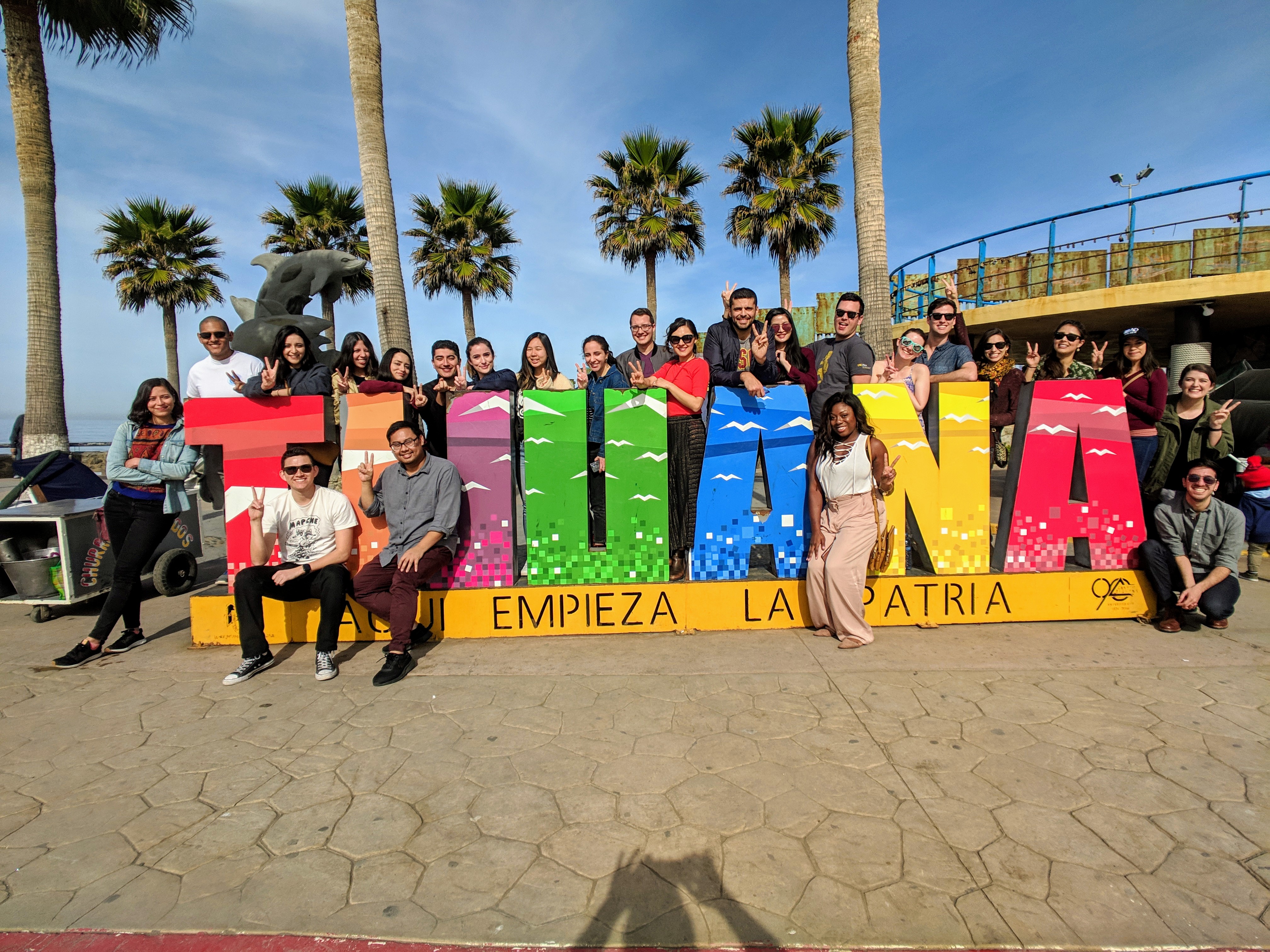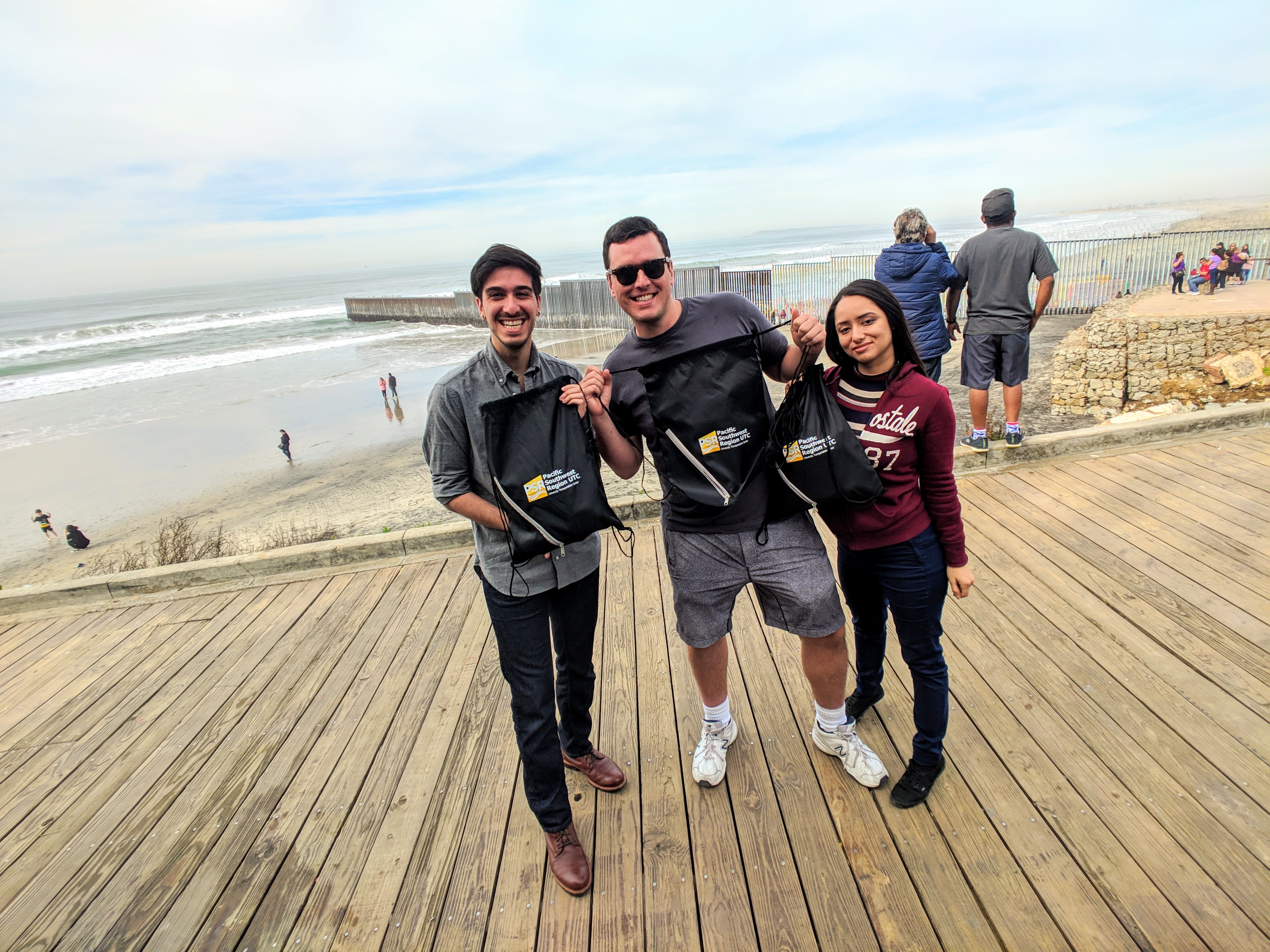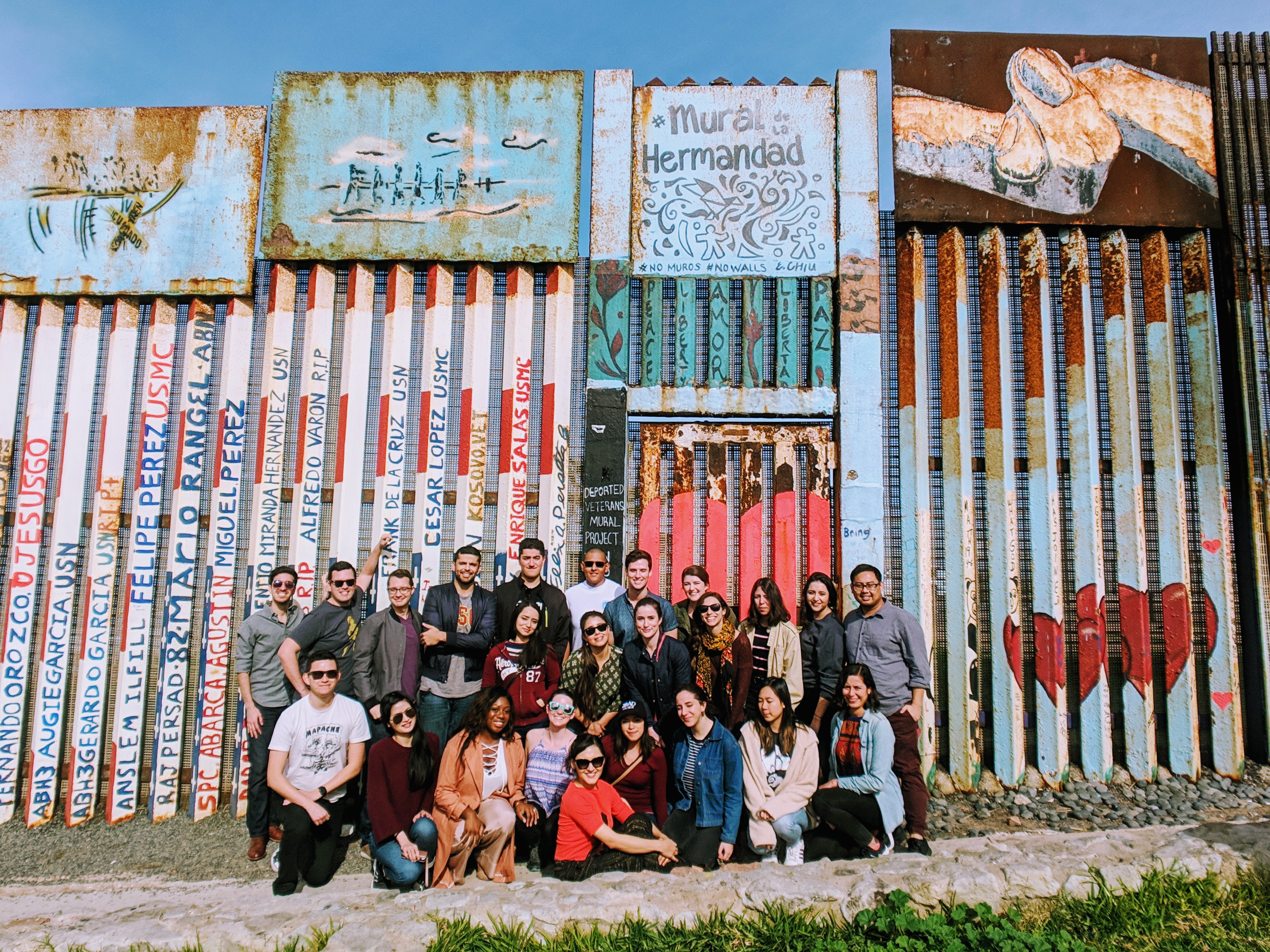News | METRANS Supports Student Experiential Learning Trip to Mexico
Stop the VideoNews

Adylbek Abdykalikov, USC, IPPAM 2020
On January 19, 2019, the USC Associated Students of Planning and Development (ASPD), Price Latino Student Association, and Partnership for an Equitable Los Angeles (PELA) organized an exciting student trip to Tijuana, Mexico as a part of ASPD Urban Crawl series. Urban Crawls are experiential learning opportunities designed to immerse urban planning students and other interested graduate students in different cities and areas in the region. METRANS Transportation Center was thrilled and happy to support this event and others which further our mission and goals, in particular with regard to transportation education and workforce development, underrepresented populations, and STEM careers.
ASPD gathered together more than 20 graduate students of Planning, Public Policy, International Public Policy, and Public Administration, and provided them the invaluable opportunity to learn about planning, public policy, and bilateral economic development in the rapidly developing city of Tijuana, just across the border.

By visiting a number of sites and having discussions with community organizations, governmental agencies, residents, and private developers, students were able to better understand the effects of bilateral policies between the US and Mexico on immigration, economic development, and the region's urban growth.
“When I was designing the day-by-day curriculum and itinerary, I wanted to highlight some of the deeply rooted issues that lay beneath the urban development of both of these regions, as well as providing insight to the importance of intentional urban planning and development,” says Mitzi Salgado, USC Price Latino Student Association.
One of the first stops of the trip was the meeting with Miguel Aguirre, the founder of Border Fusion, an organization that focuses on the strategic value of cross-border “people-centered” infrastructure and identifies opportunities and policies which can strengthen global trade. This visit highlighted how urban planning has a monumental effect on people crossing the border every day and, most importantly, on the bi-national economy.
One of the most important sites along the comprehensive itinerary was the San Ysidro Port of Entry, the largest land border crossing between San Diego and Tijuana and one of the busiest land border crossings in the world. The students experienced crossing the border themselves and discussed the improvements and challenges of both the Eastern and Western pedestrian crossings. This kind of experience gave the opportunity for Transportation and Urban Planning students to understand the specifics of planning from an international and cross-border perspective.
Another valuable experience was the Bus Tour over Tijuana which provided an engaging opportunity to explore the public transportation system of the city. Despite being one of the densest cities in Mexico, Tijuana has one of the weakest public transportation systems in the country. Students discussed the constraints and challenges the City of Tijuana faces and the involvement of different stakeholders in the city’s transportation system. This tour also included stops at various sites, such as Via Corporativo, one of the first fully self-sustainable building constructions in Tijuana, and the Cuauhtemoc monument in Baja California, among others.
The group also had an interesting meeting with Enrique Morones, founder of Border Angels, a volunteer, non-profit organization advocating for human rights and social justice with a special focus on the US-Mexican border. Students had the opportunity to discuss the immigration reforms and changes affecting both countries with this influential leader.
Overall, the Tijuana trip provided an extremely valuable experience of understanding the holistic, interdisciplinary, and multidisciplinary effects of policy implementation and how this differs from theory. “My goal was to empower students, not only in the planning program but also public administration and public policy, to ask themselves the question, "How can I be more intentional about the decisions I make for people I am impacting in my line of work?", says Mitzi.
The Tijuana Urban Crawl was more than just an educational experience - it was a life-lesson for students who will soon graduate from USC and begin their careers with the crucial idea that they are capable of making a difference.
About the Author:
Adylbek Abdykalikov is a graduate student of International Public Policy and Management Program at USC Price. He has working experience in various positions at the Ministries of Transport and Communication and Investment and Development of Kazakhstan and was in charge of Transportation and Civil Aviation policy development and implementation.
A Special Thank You from Kristian Castro, USC Associated Students of Planning and Development (ASPD)
We greatly appreciate the support of METRANS and its sponsors for providing valuable financial support. We could not operate without the generous gifts of organizations and individuals like you and your contribution furthers the education and professional development of the tour participants.

The Urban Crawl includes a comprehensive itinerary that discusses topics in various transportation, policy, and planning areas. Major projects that will be highlighted include the new San Ysidro Port of Entry as seen from both sides of the border (the busiest land border crossing in the world), recent Bus Rapid Transit projects, and expansion of the Tijuana’s Ciclovías (urban bike paths). We engage with transportation professionals from Tijuana and San Ysidro to facilitate discussions about the impact of these projects and how students can get involved in future developments.
As part of the core values of ASPD, PELA, and Price Latino (the three partnering student organizations coordinating this trip), we aim to provide an immersive experience that not only exposes students to the rapid developments occurring in Tijuana, but also equity issues that come from land use. This trip engages community leaders and residents to voice their concerns about the city's development and how Tijuana's growth can be inclusive of underrepresented populations. The trip's itinerary is designed with a strong equity focus, ensuring that participants are fully aware of social justice issues that are happening in the border region and the multiple organizations and people working to address those issues.
The itinerary includes site visits, tours, and presentations led by various professionals in transportation, housing, real estate, urban development, civic leaders, immigration, and more. These professionals connect with participants to provide insights into certain careers, especially for those who are interested in working in the border region or on issues that will be covered. The itinerary is intentionally designed to connect students with professionals to get a deeper sense on how to facilitate growth and advance policies in Tijuana and other developing countries.
We truly appreciate your support on this trip.
More about the Annual Tijuana Urban Crawl from the student organizers:
The Tijuana Urban Crawl is an immersive experience to the binational border region to learn about the effects of bilateral policies between the US and Mexico that influence the myriad of planning and policy issues in the new housing, transportation, commercial, and civic projects that are taking place in Tijuana, Mexico. This overnight trip further explores the effects of immigration policy, economic development, and income inequality in our site visits, and aim to provide an interdisciplinary perspective about the region's urban growth and immigration. The site visits will include tours facilitated by community organizations, governmental agencies, residents, and private developers.

The Tijuana Urban Crawl is a student lead, flagship initiative that provides an engaging opportunity for Master of Planning, Public Policy, International Public Policy, and Public Administration students to learn about planning, public policy, and bilateral economic development in a rapidly developing city just across the border.
News Archive
- December (1)
- November (6)
- October (4)
- September (2)
- August (3)
- July (4)
- June (3)
- May (7)
- April (8)
- March (11)
- February (8)
- January (7)
- December (7)
- November (8)
- October (11)
- September (11)
- August (4)
- July (10)
- June (9)
- May (2)
- April (12)
- March (8)
- February (7)
- January (11)
- December (11)
- November (5)
- October (16)
- September (7)
- August (5)
- July (13)
- June (5)
- May (5)
- April (7)
- March (5)
- February (3)
- January (4)
- December (4)
- November (5)
- October (5)
- September (4)
- August (4)
- July (6)
- June (8)
- May (4)
- April (6)
- March (6)
- February (7)
- January (7)
- December (8)
- November (8)
- October (8)
- September (15)
- August (5)
- July (6)
- June (7)
- May (5)
- April (8)
- March (7)
- February (10)
- January (12)















